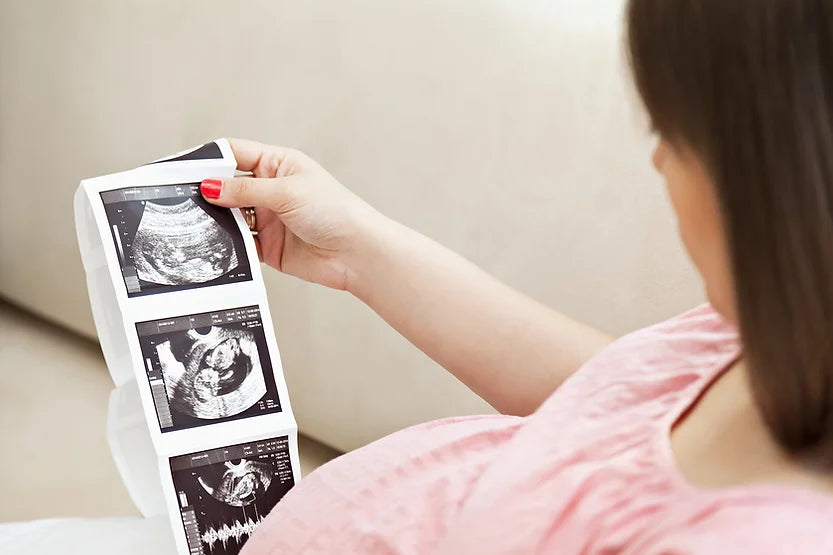Types of scans
Early scan
The first trimester scan you should be offered is a nuchal translucency scan (NT Scan) between 11 and 13 weeks 6 days, however some women may be offered their first scan earlier in their pregnancy.
If you have previously miscarried or you have had bleeding in the first few weeks of this pregnancy, you may be offered an early scan between 6 and 10 weeks. The purpose of this scan is to reassure you, and end any uncertainty of not knowing how your pregnancy is progressing. The early scan is likely to be conducted by placing a probe inside the vagina to provide a clearer picture of your baby earlier in pregnancy , instead of the usual abdominal scanning equipment.
If you feel anxious about having a vaginal scan discuss any concerns you may have with the nurse or sonographer beforehand. Most women would not be offered this scan but if your doctor has referred you for a scan it will be covered by Medicare.
Dating scan
Many pregnant women are unsure of the date of their last monthly period (LMP) and so a dating scan might be recommended to work out an accurate due date. Determining how pregnant you are is important to ensure that the results of your nuchal translucency scan are accurate.
Nuchal translucency scan
You will be offered a nuchal translucency scan between 11 and 13 weeks and 6 days of pregnancy. If you are going to deliver in a public hospital you may be able to have this scan at a public ultrasound clinic, however in many cases you will have to pay for this scan and test in a private center.
The primary reason for the NT scan is to determine if your fetus is likely to have a chromosomal abnormality, such as Down syndrome, however the NT scan can also reveal other conditions. It is usually offered as part of a combined test, which includes the NT scan and a blood test to detect the levels of the pregnancy hormone human Chorionic Gonadotrophin (hCG) and pregnancy-associated plasma protein-A. For a definite diagnosis a test, such as amniocentesis, is required.
This scan will also check that your baby has a heartbeat and is developing normally, and whether you're expecting twins, triplets or more! It's helpful to know about multiples early on, as it's easier to see whether or not they share a placenta. Finding out about having twins early in pregnancy also gives you more time to prepare for the birth and for your doctor or midwife to plan your care.
Anomaly (or 20-week) scan
This scan is offered to all pregnant women between 18 and 20 weeks. Its main purpose is to look at your baby in fine detail and check for abnormalities in the baby's structural development and growth, such as spina bifida or heart anomalies, and to check the position of the placenta.
You will be able to see movements and if you haven't already had a scan in this pregnancy, the sonographer will check that there is only one baby, reveal the sex of the baby (if you want to know) and confirm your due date. She will point out the heartbeat and parts of the baby like the face and hands, before looking in detail at your baby. At this point, some sonographers will turn the screen away for the rest of the scan and show you views again at the end. The scan takes about 15-20 minutes.
betterhealth.vic.gov.au. (2020). Tests, scans and checks – pregnancy and labour. Retrieved from https://www.betterhealth.vic.gov.au/health/ServicesAndSupport/tests-scans-and-checks-pregnancy-and-labour

